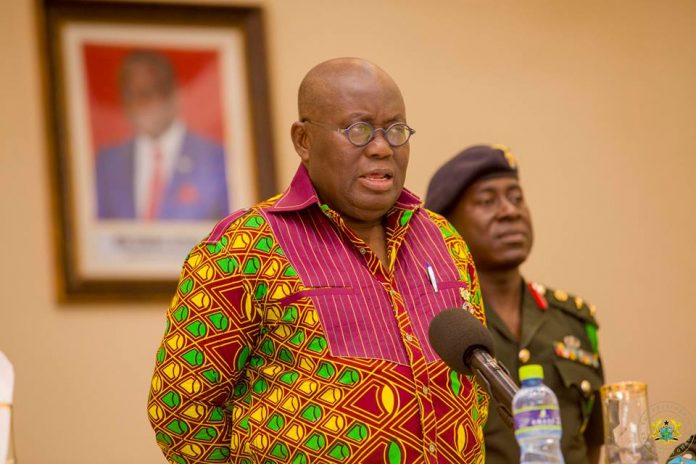Last year, the Ghanaian civil society won a great policy reversal milestone on illegal artisanal or small-scale mining (galamsey) activities, but that feat went unrecognized. The government, which took advantage of the massive public outcry over the gruesome murder of Captain Mahama at Denkyira Boase to rush in to swiftly place ban on galamsey activities, was rather given the plaudits for saving the country. Thus the long-standing role of the civil society in fighting against the dangers of galamsey, especially the destruction of the water bodies and involvement of the Chinese in environmental degradation and pilfering of Ghana`s gold, paled into insignificance. The summation is that it is only the decisions of government which becomes louder!
But, whether the civil society campaign and criticisms or government`s intervention ended the reign of the ancient galamsey activities, it was quite clear that the decision was in line with the opinion of the masses. They agreed and readily accepted the ban without much opposition.
Even the galamsey operators were in agreement, albeit their wish for the government to regularize the sector and deal with the recalcitrant offenders to allow genuine operators to proceed with their work. But the government despite its earlier electioneering campaign promises in 2016 that they would not ban artisanal mining but would regularize the sector, conceded to the mounting public pressure to ban the illegal artisanal mining (galamsey) operations in Ghana indefinitely.
After the Galamsey Ban
The ban on the galamsey may have won the hearts of many Ghanaians, but it also led to massive destruction of mining properties. The joint military-police taskforce, Operation Vanguard (OV), formed to help fight galamsey menace in the country, seized mining equipment and arrested recalcitrant miners. In some instances, some stubborn galamsey operators who refused to comply with the ban had their expensive excavators set on fire to serve as deterrent to others.
In the end, the ban was applauded by Ghanaians but the methodology adopted to quell the ban also made the galamsey operators to win back some public sympathy. Firstly, the ban was rolled out to affect all artisanal mining activities without targeting the illegal artisanal miners only. This caused the operators with license duly registered to operate on their concessions as artisanal miners to fault the ban. Secondly, no timeline was set for the end of the ban. Thirdly, because the government proceeded swiftly to respond to public outcry, it did not have the luxury to find alternative livelihood for the people who were (going to be) affected by the ban.
Adding to these three factors which aroused some public sympathy for the galamsey operators, was the political game. The National Democratic Congress (NDC) communicators accused the ruling New Patriotic Party (NPP) government and President Nana Addo Dankwa Akufo Addo for deceiving the galamsey operators. They argued that Nana Addo in his campaign for the presidency had promised never to ban the galamsey business, but to regularize the sector to improve it and expand their base to offer employment to the people. This attack on Nana Addo by the NDC did not affect his credibility at all, but it forced the government to explain that the ban was not in perpetuity. The government went on further to aver that it “placed a ban on all small-scale mining activities in the country in order to help deal with the illegal ones.”
Other Accusations
Whilst the ban continued to be supposedly enforced, accusations emerged from other mining communities that some local and Chinese illegal artisanal miners were taken bribes and allowed to continue their nefarious mining activities. Names of some security personnel and individuals in the upper echelons of the ruling government were fingered in their alleged roles in galamsey activities at the blind side of the ban.
Recently, Honourable Kennedy Ohene Agyapong, the Member of Parliament for Assin Central, disclosed that some members of the OV task force are in bed with the galamseyers to derail the effort of the nation in quelling the illegal small-scale mining menace in the country. He said: “They were brought to help deal with the problem but they have rather worsened the situation by taking bribe from the galamseyers to allow them to continue destroying the water bodies all in the name of searching for gold…The president and the Minister of Lands and Natural Resources have good intentions with the fight against galamsey but the task force is making their efforts useless.”
Honourable Kennedy Ohene Agyapong contended that the OV taskforce has failed Ghanaians and as a matter of urgency they should be disbanded in order to sanitize the system to regain confidence.
Last week, it also emerged that a member of the personnel of the ‘National Security’ caught on tape trying to arrange for galamseyers to obtain land for galamsey purposes – at a cost of US$20,000.
Where did the Chinese go after the ban?
The ban on galamsey hurt the Chinese agency in the local mining sector. Huge sums of Chinese capital and investment had been dumped into the sector to prospect for gold and other mineral resources. New Chinese migrants poured in daily from China and headed to the hinterlands of Ghana to prospect for gold to buy new concessions. They were actively led by their local fronts who receive pittance to show them where mining fields are. In fact, there was no mining communities and would-be mining deposit area in Ghana that one cannot find a Chinese national.
Following the ban, the Chinese have not slept on their oars at all. They have lost capital and investment in galamsey. Indeed, they were major casualties of the ban, as result they moved from the Southern and the Middle belts of the country to the North to prospect for new natural resources to capture. Here they found the new forestry gold in Rosewood.
For the erudition of readers, Rosewood tree (Dalbergiasissoo) which grows in tropical regions of the world, is highly prized for its veneer and lumber, and valued as an important specimen for the production of fine furniture. Indeed, richly hued, cherry-brown rosewood is one of the world’s most valuable timbers. A cubic meter can fetch US$5,000 in Cambodia or 10 times that amount once smuggled into China, where the demand for Ming- and Qing-style rosewood furniture is enormous. It is also recorded that a single ornately carved bed can cost a cool US$1 million in plush Shanghai showrooms, meaning the potential profits are tantalizing for impoverished loggers, as well as the traffickers who spirit the lumber across porous frontiers.
The voracious Chinese demand for Rosewood has affected the species of the tree, Siamese, nearly pushing it into extinction in Cambodia, China, Vietnam and Thailand. Consequently.
In 2013, rosewood was listed on the Convention on International Trade in Endangered Species of Wild Fauna and Flora (CITES). It was observed that the rush for Rosewood caused wholesale plunder of once protected forests in Cambodia and Vietnam, via government land concessions. Loggers are increasingly moving west into Thailand, where trees felled illegally are in large amounts, judging by the seizure of logs on a daily basis. Thus at a meeting in Bangkok in 2016, Cambodia, China, Vietnam and Thailand all jointly agreed to give countering Siamese rosewood trafficking the highest priority. According to a statement by the antilogging NGO Freeland, “agreement by these four countries is considered a step forward in the fight to combat the illegal logging and trade of protected Siamese Rosewood.”
As predatory resource capturing cabals, the Chinese have rolled out their money to the poor small-holder farmers in the North to allow them to cut down all the Rosewoods on their farmlands and forest cover. They have invaded Gonjaland, Dagombaland, Sisaland and Wa lands to cut down any available Rosewood. Their activities at Wa Central is appalling.
Rosewoods which serves as windbreaks and desertification have been targeted. Poor farmers are enticed with few dollars to agree to sell the trees. Their activities are now getting into the Mole National Park, whilst our Northern citizens and their intellectuals stand aside without making any effort on their own or in collaboration with the government to stop the Chinese.
The question that beat the imagination is that, why are the Chinese who would not destroy their water and fauna lives come to Africa to destroy everything and our government looks on unconcerned? Are our leaders’ complete buffoons or outright sell-outs?
Galamsey ban lift and the Chinese connection
For the ruling NPP, the decision to take billion dollar loans from China has incapacitated their neoliberal paws. They can now do nothing to offend the Chinese, they have become their slaves and no amount of Chinese destruction in course of doing business can rattle them to take action. They cannot make any decision or look for solution without Chinese consultation and support.
Recently, Barbara Oteng-Gyasi, Deputy Minister for Lands and Natural Resources and the MP for Prestea-Huni Valley assured Ghanaians that very soon the ban on galamsey shall be lifted. Thus she asked for patience amongst small-scale miners, as the process to streamline operations of the small-scale mining sector is at its conclusion stage.
Lawyer Oteng-Gyasi, speaking at her residence at Huni-Valley said: “I thank the small-scale miners for exercising patience over the last one year, what I can assure them is that we are in the last stages of the processes, we need just a little more patience.”
What was quite curious about Madam Oteng-Gyasi`s statement was her disclosure about the role of the Chinese in training and sponsoring our people in the natural resource management as if as a country, we lack that technical know-how. Hear her: “We have trained both small-scale miners and galamseyers and have also sent people to China for training on Natural Resources Management…We are left with the auditing of sites of small-scale companies to go…Drones and Navy Officers will also be monitoring our water bodies to make sure nobody works on the water bodies”.
We behave as if China and every advanced country have our interest at heart, when all their business activities show that they are here to plunder our resources as part of the global North and the BRICs agenda to scramble for Africa`s resources.

